Why Does This Matter?
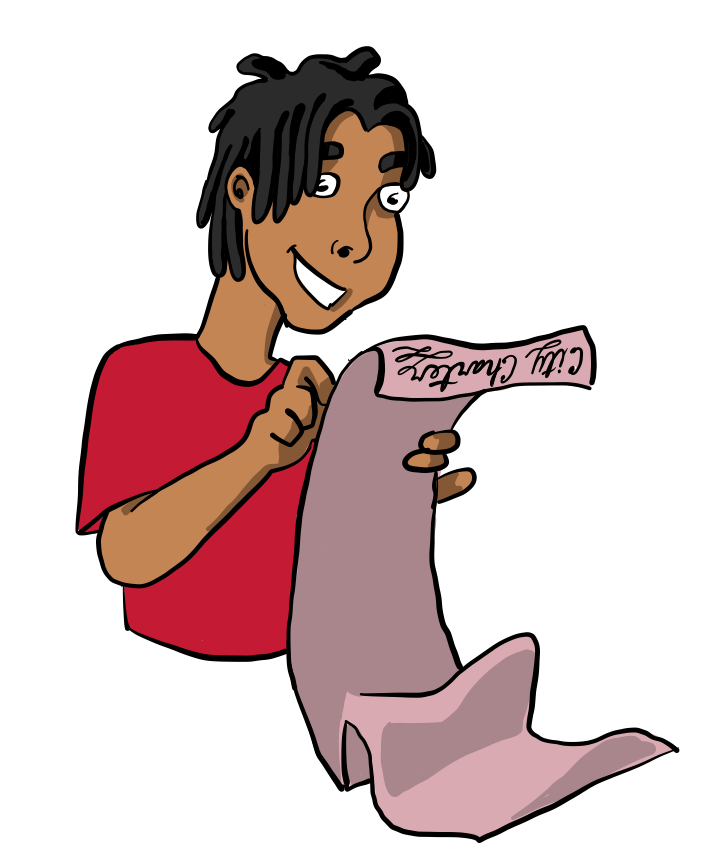

People are the changemakers in this country. Democracies give its citizens the responsibility to make sure that government is doing its job and representing the needs of the people. As a result, we can have influence over all parts of government. In fact, many decisions that personally touch us are made at the local –– not the federal –– level. Local governments exercise power closest to the people, making it the most accessible level of government. As citizens of Detroit, we can influence decisions that impact our daily lives.
Remember: Citizens have more daily contact with local government, which allows us to participate actively and enact change in our communities.
The more we engage in the democratic process, the more we understand how to better serve our communities. The democratic process is the ways government makes decisions and there are many opportunities for us to participate in the process and influence those decisions. Active participation in the democratic process and local government can provide us with a sense of empowerment, and when we feel empowered, we feel ready to become even more civically engaged. Being an engaged citizen means being informed about our government and encouraging others to do the same. It means understanding what the city is responsible for, so you can engage in the democratic process in an informed way and help to shape our city.
Connecting the Dots
Detroit city government is responsible for addressing the needs of its citizens by providing a range of city services.
We might consider our city government as a toolbox with several services contained within the different compartments. These services include decent housing, fair elections, job opportunities, clean air, clean waterways, and safe drinking water. Local government is responsible for things like maintaining City-owned buildings such as recreation centers and determining how land can be used and what kind of buildings can be built. Local government also is responsible for the economic growth (businesses, employment, etc.) and development of our city. Working with the county and state, the City is responsible for managing all that takes place within its boundaries.
Moreover, the City is responsible for the safety of its citizens. Our charter, the legal document that establishes our city, requires city government to guarantee the equal protection of all its citizens. The use of law enforcement, fire protection, and reliable transportation are all services the city uses to maintain public safety.
The charter also requires the City to ensure all its citizens have equal opportunity to the rights and services outlined in the city charter. If a service, department, or activity is included in the city charter, that means that the City is required to provide it. You might hear this idea referred to as “mandated by the charter” or “charter-mandated.” In other words, cities like Detroit are held accountable for following these mandates –– you might even think of them as rules.
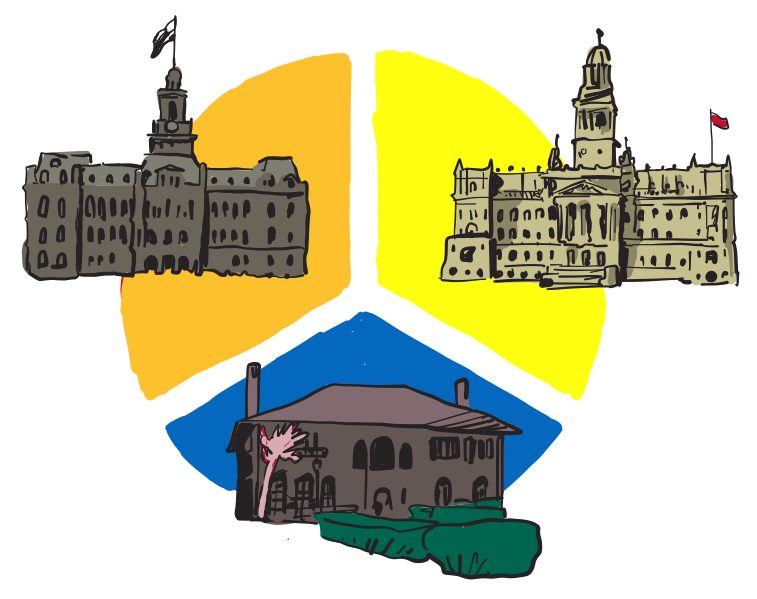

The branches of our local government implement the city’s charter; they put it into action. Maybe you’re familiar with the federal branches of government: the Executive Branch (President), the Legislative Branch (U.S. Senators and Congresspeople), and the Judicial Branch (the Supreme Court).
Detroit has those same branches of government. In order they are: the Mayor, City Council, and the courts. And just like the federal branches of government, Detroit’s local branches have checks and balances so that each branch has powers that require or invite the involvement of another branch and no single branch has too much power.
The Mayor
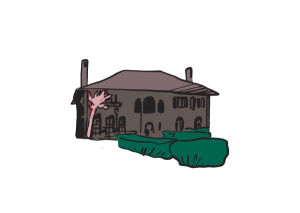

The Mayor is the leader of the executive branch and is the chief executive (or lead administrator) of the City. The mayor is elected every 4 years and is a non-partisan office, meaning regardless of whether or not they are a member of a political party (such as the Democratic or Republican parties), political parties do not determine nominees. Also, when you vote for that person, a political party is not listed. The mayor must maintain the departments and activities that are required in the city charter, but this individual also can create new offices or departments depending on the city’s needs.
Key duties of the mayor include:
- Implementation of programs, services, and activities of city government that are outlined in the city charter
- Developing and executing City policies
- Making sure ordinances are implemented
- Submitting a city budget to the city council for approval
- Making appointments to certain city offices, to lead departments, as well as to certain boards and commissions
- Overseeing city departments and officers
- Appointing a Deputy Mayor who takes on leadership of the city if the Mayor is absent or temporarily disabled/unable to fulfill their role
- Veto (override) city ordinances
| The 2012 revision of the city charter included a requirement that the Mayor has at least one community meeting in each city council district as well as a city-wide community meeting every year. |
City Council
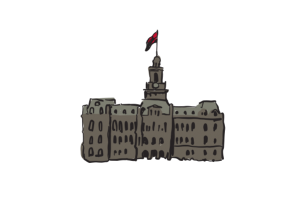

Funding for departments and establishing new departments requires the approval of city council which is the legislative branch. This branch is responsible for the creation of local laws—called ordinances in the city.
City Council members are elected on the same cycle as the Mayor. They are also non-partisan positions that are elected to 4 year terms. Seven members are elected to represent smaller sections of the city, called city council districts. Two members are elected at-large, meaning people across the city vote for them to represent the city overall.
Key Duties of the City Council include:
- Adopting the city budget proposed by the mayor (with amendment as needed)
- Confirm or deny mayoral appointments
- Including: Chief of Police, Fire Commissioner, Director of Planning and Development, Director of Human Resources and Corporation Counsel (i.e. the City’s attorney).
- Investigate City affairs and conduct of any city agency including powers seen in courts such as subpoenas which are a legal order requiring someone to appear and provide testimony in a meeting
- Approve sale of city property
- Write ordinances (laws) and penalties for violating them as well as enact ordinances
- Makes appointments to certain offices, boards, and commissions
If six or more out of the nine council members agree, the City Council also can override the Mayor’s veto of any particular ordinance. Once an ordinance is approved, the City Council can decide when to publicize an ordinance and have it take effect.
City Council accomplishes its work through committees. Council members serve on different committees and the recommendations of those committees are reviewed at the full council meeting to be approved, denied, or revised. Like departments, some committees are charter mandated and others are established by the council based on the need to do certain work. The charter-mandated committees include:
- Budget and finance
- Neighborhood and Community Services
- Human Resources
- Law and Public Safety
- Planning and Economic Development
Other council committees include:
- Public Health and Safety
- Internal Operations
- Rules Committee
When the mayor wants to establish non-mandated departments it is usually based upon the needs of the city and its residents during their administration. For example, the Department of Neighborhoods was established to ensure residents could connect to the Mayor’s office in their own neighborhoods. As part of the annual budget process, the mayor submits the organization plan (departments, offices, staffing, etc.) to city council for approval every year.
There are also key boards and commissions that you could consider part of the legislative branch based on their advising and decision-making roles. They are:
- Board of Zoning Appeals (BZA) – responsible for making decisions about the use of land when properties deviate from the zoning code (also called a variance). The Board of Zoning Appeals is composed of at least seven members, one from each City Council district.
- City Planning Commission (CPC) – responsible for advising the City Council about development matters including land use, city design, history, and the preservation of the City’s historical legacies. The City Planning Commission is made up of nine members who are appointed by City Council.
| Removal From Office: Elected officials can be removed from office. Removal from office can occur when the people petition for a recall election, or by the Michigan Governor. In some cases, City Council can initiate the recall of the Mayor. The Michigan Constitution and state election laws determine the reasons and process to remove elected officials from office. |
City Departments
The Mayor oversees city departments. Here is a short list of some key departments and the reasons you might contact them. Click here to see a full list of the city departments.
| City Departments | Contact this Department for… |
|---|---|
| Civil Rights, Inclusion, and Opportunity Department (CRIO) | This is the department to contact if you’re concerned about issues of discrimination or inclusion. For example, in 2019 this office hosted a public discussion about race with a local bar after receiving a complaint from a Black customer about the service he received. This is also the office responsible for monitoring diversity on publicly funded projects such as the construction of new buildings. |
| Department of Neighborhoods (DON) | The DON is connected directly to block clubs, community groups, business owners, faith and school leaders, and citizens in each council district. It’s often a great place to start if you have neighborhood specific questions or interests. |
| Department of Public Works (DPW) | Concerned about sidewalks, streets, and trash? The DPW is the place to go to learn more about city services in those areas. |
| Municipal Parking Department (MPD) | This department issues parking tickets and collects fines from parking tickets but you can also contact them if you have questions or concerns about where people are allowed to park, including handicapped parking. |
| Detroit Department of Transportation (DDOT) | DDOT’s bus routes serve the City of Detroit, surrounding suburbs, and neighboring cities, including Highland Park and Hamtramck. You can talk to this department about bus service, routes, and fares. |
| Youth Services Department | Programs in this department include youth employment opportunities like Grow Detroit’s Young Talent and the mayor’s summer jobs program; Summer Fun Centers; and after-school programs. |
| Detroit Fire Department (DFD) | In addition to fire-related matters, this department is also an emergency first responder. Contact them for more information about emergency response times, neighborhood fire stations, and fire prevention education. |
| Detroit Health Department (DHD) | One of the departments with community programming, you can call for parenting and reproductive health information; immunization, lead, vision, and hearing testing; information about health clinics; plus healthcare, Women Infants and Children (WIC) benefits; and even copies of birth certificates. |
| Detroit Parks and Recreation Department (DPRD) | Hosting a large family BBQ or celebrity basketball game? This is the department to connect with. It oversees the City’s 309 parks and 11 recreation centers plus after school programming, youth and older adult sports, and year-round activities. |
| Planning and Development Department (PDD) | Have you seen streets with bike lanes? Or noticed sidewalks that are wider in some areas than what you’re used to? Have you ever looked at vacant land and wondered what could be built there or why some neighborhoods have business corridors while others don’t? This department thinks about all of those things as well and creates plans for the city to follow. Contact them to give your input on city development, invite them to your neighborhood, and get more information about the city’s plans for neighborhoods. |
| Detroit Police Department (DPD) | You can of course call the Detroit Police Department (and your local precinct) for issues and questions related to crime as well as response times. But you can also contact this department to connect with your neighborhood police officer,and attend meetings about policing in your neighborhood. Complaints about police or how you’ve been treated should go to the Board of Police Commissioners. Learn more about this in the Department Highlight on page XX |
| The Detroit Water and Sewerage Department (DWSD) | Questions about water shutoff policies or what goes into your water bill? This is the department to call. You can also call about sewer backups (street flooding), and for information about protecting the pipes in your home. |
| Activity: research departments that existed under a previous mayor but no longer exist today. What did those departments do? |
Other Services and How We Receive Them
In some cases the charter mandates services not departments. Those services may be delivered through various departments and over the years, some of the responsibilities for services have been “transferred” to other bodies for better administration or funding.
| Services | The City is responsible for… |
|---|---|
| Arts | The Office of Arts, Culture, and Entrepreneurship is within the Planning Department. This office has information about public art projects and opportunities for Detroit’s artists to work with local government. There is also an Entertainment and Arts Commission with appointed members. |
| Health and Sanitation | This service is provided through a number of departments including the Department of Public Works and the Health Department. The services included are:Providing a sufficient level of mental and physical health services to all citizens. Collecting and disposing of waste in a manner that is environmentally sound. |
| Public Lighting | In 2013, the supervision and controlling of Detroit’s streetlight system was transferred from the Public Lighting Department to the Public Lighting Authority (PLA). The PLA’s responsibilities include street lights, poles, and wiring. |
| Zoological Park | The city of Detroit has an agreement with the Zoological Parks Society to maintain and operate the Belle Isle Zoo, including the Belle Isle Aquarium, and the Detroit Zoo. |
The Courts/Judicial Branch
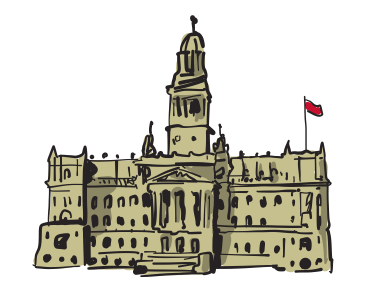

Similar to the federal government, local government also has a judicial branch, which is responsible for enforcing laws. It’s important to note that the City’s major connection with the judicial branch is funding with no operational oversight or monitoring. While there are many courts that interpret laws for Detroiters, the 36th District Court is the court connected to Detroit’s local government. The 36th District Court funds its operations through fines, foreitures, and penalties; grants and shared taxes; as well as sales and charges. Its budget is overseen by the City of Detroit (judges however, are paid by the State of Michigan) and the City Council Internal Operations Committee is responsible for the court.
| In 1981, the Michigan Legislature amended The Revised Judicature Act (Act 236 of 1961). Both Detroit’s City Council and the Wayne County Board of Commissioners passed resolutions supporting the amendment. These three actions created the 36th District court by merging the Detroit Common Pleas Court and the Traffic and Ordinance Division of the Detroit Recorder’s Court and established Detroit City Council’s oversight of the court’s budget. |
- 36th District Court – responsible for hearing, or handling, certain legal cases in the city of Detroit, and making it one of the busiest courts in the nation. These cases include landlord and tenant disagreements, traffic violations, some parking violations, drunk driving, and disputes involving up to $25,000. The court also hears cases involving more serious criminal charges, including all misdemeanors and preliminary examinations for felony cases (felony trials occur in the 3rd Circuit Court).
Bail & Juries
Bail is issued when a person is charged with a crime. It is an amount of money that a person must pay in order to be released from jail while they await trial either from their own cash or assets, or through a private bail bond. The court’s judge determines the bail amount using guidelines established by state law, however the judge can issue bail at any amount within those guidelines or decide to release a person on their own “recognizance,” meaning without bail but with an agreement to appear at all future court dates. If a person cannot pay their bail, they can be held in jail until the trial. In cases of murder, bail can be denied.
Many communities are exploring alternatives to cash bail to reduce the number of people whose financial challenges force them to await trial in jail.
Independent Departments


Jury duty is an important part of civic engagement. The U.S. Constitution guarantees anyone who has committed a crime an opportunity to have a trial in front of a fair jury, which is the group of people who decide if the person should be considered innocent or guilty. But, did you know there is a history of jury discrmination in our country? During the Civil War and Reconstruction eras, southern juries especially would be restricted to all white men. Meaning that when Black people were tried, especially for race-based “crimes,” many individuals with long held racist beliefs were determining the legal verdict. When we participate in juries, we ensure the accused has people with diverse perspectives considering their case and we shape the criminal justice system in our community.
Our legal system attempts to make juries fair by randomly selecting people to serve on juries from the community where the court is. The 36th District Court randomly selects registered voters and people with driver’s licenses from Detroit to serve on juries. If you receive a jury summons in the mail you are legally required to show up (employers must excuse you from work for jury duty). You might be selected to serve on a jury or you might be dismissed after that date and you are paid for each day you serve as a juror.Receiving a summons can feel inconvenient, but consider your opportunity to participate in and shape the judicial branch of our local government.
| Law Department | Providing a variety of legal services to the City, its elected officials, departments, agencies, offices, commissions, boards, and employees. |
| Department of Appeals and Hearings | Known as “Blight Court,” this department is responsible for oversight of citizen property maintenance by enforcing and processing issues related to the blight code.The department was created in 2005 and investigates reported blight violations, collects blight ticket payments, and hears appeals from those who think they’ve been unfairly ticketed. |
| The 2012 city charter established “Independent Departments and Offices” in city government including many that deal with oversight, investigation, and reporting of city government activity. The leaders of these offices may be appointed through the legislative or executive branches, but they have powers that allow them to investigate and hold those branches accountable. You’ll learn more about these offices in Accountability |
There also are 21 boards and commissions that are made up of appointees who advise city government on a variety of policy issues. You can check these out at the City Board page and Commissions page.
- Board of Electrical Examiners
- Board of Ethics
- Board of Police Commissioners
- Board of Review – Property Assessment
- Board of Water Commissioners
- Board of Wrecking Contractors Examiners
- Board of Zoning Appeals (described in the legislative branch see page [ appropriate page number])
- Detroit Local Emergency Planning Committee
- Historic Designation Advisory Board
- Belle Isle Advisory Committee
- Charter Revision Commission
- Citizens Review Committee
- City Planning Commission (described in the legislative branch)
- Civil Service Commission
- Community Advisory Committee – Brownfield Redevelopment Authority
- Detroit Building Authority Commission
- Detroit Elected Officials Compensation Commission
- Detroit Entertainment Commission
- Detroit Housing Commission
- Detroit Promise Zone Authority
- Election Commission
- Historic District Commission
- Human Rights Commission
Lesson Review
The Detroit city charter begins with the “Declaration of Rights,” which outlines the rights and responsibilities that Detroiters can expect from their city government. Declarations of rights have a long history in our country from the United States Bill of Rights (which are the first 10 amendments to the U.S. Constitution) to Patient Bills of Rights which you can see posted in hospitals. Detroit’s Declaration of Rights at the start of the charter establishes what our city government aspires to be. Take some time to read and translate the Declaration of Rights into your own words. When you finish, reflect on how well you think the City of Detroit is upholding the declaration and discuss your thoughts with a partner.
